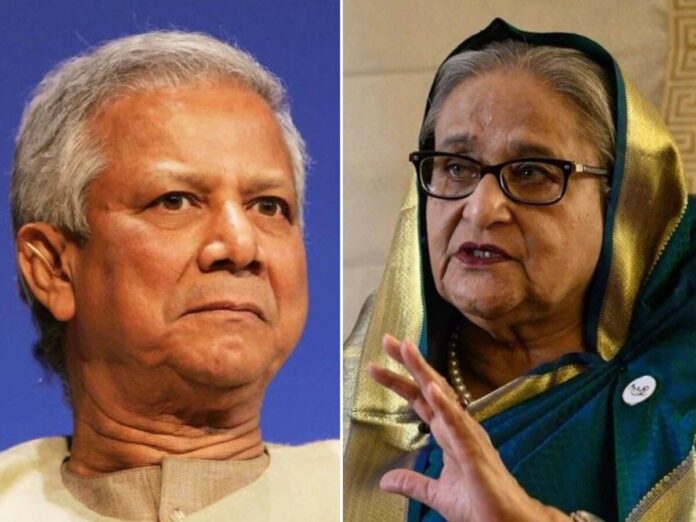There is continuous rhetoric from Bangladesh regarding former Prime Minister of Bangladesh Sheikh Hasina, who is living as a refugee in India. Asif Nazrul, law minister in the Bangladeshi interim government, said on Friday that if India refuses to extradite Sheikh Hasina, it will be strongly opposed.
Bangladesh's International Crimes Tribunal on Thursday issued an arrest warrant against Sheikh Hasina in a case of human rights violations. The court had issued an order saying that Sheikh Hasina should be produced before it by November 18. After this this comment was made by the Law Minister.
Speaking to Bangladeshi news channel, Nazrul said that we have many legal arrangements for the extradition of Sheikh Hasina. There is already an extradition treaty between India and Bangladesh. Although India can refuse citing other rules, but if seen honestly and according to the law, then India is bound to extradite Sheikh Hasina.
Sheikh Hasina is in India due to security reasons – Foreign Ministry
When the arrest warrant was issued against Sheikh Hasina, the Indian Foreign Ministry said that she is present here for security reasons. Sheikh Hasina reached India with her younger sister on August 5 and since then she is present here at an unknown place. His diplomatic passport has been canceled by the internal government of Bangladesh.
There is continuous rhetoric in Bangladesh regarding bringing Sheikh Hasina to India. Foreign Minister in the interim government Tauheed Hussain had said in September that India would decide whether to send Sheikh Hasina back to Bangladesh or not. Apart from this, another leader said that India giving shelter to Sheikh Hasina is like giving shelter to a criminal and a murderer.
There is an extradition treaty between India and Bangladesh for the last 11 years.
There is an extradition treaty between India and Bangladesh for the last 11 years. To make this treaty with Bangladesh easier, both the countries had abolished the rule of arrest warrant and sharing of evidence. However, there is also a rule in this treaty that if an attempt is made to extradite a person related to any political crime, then it can also be refused.

